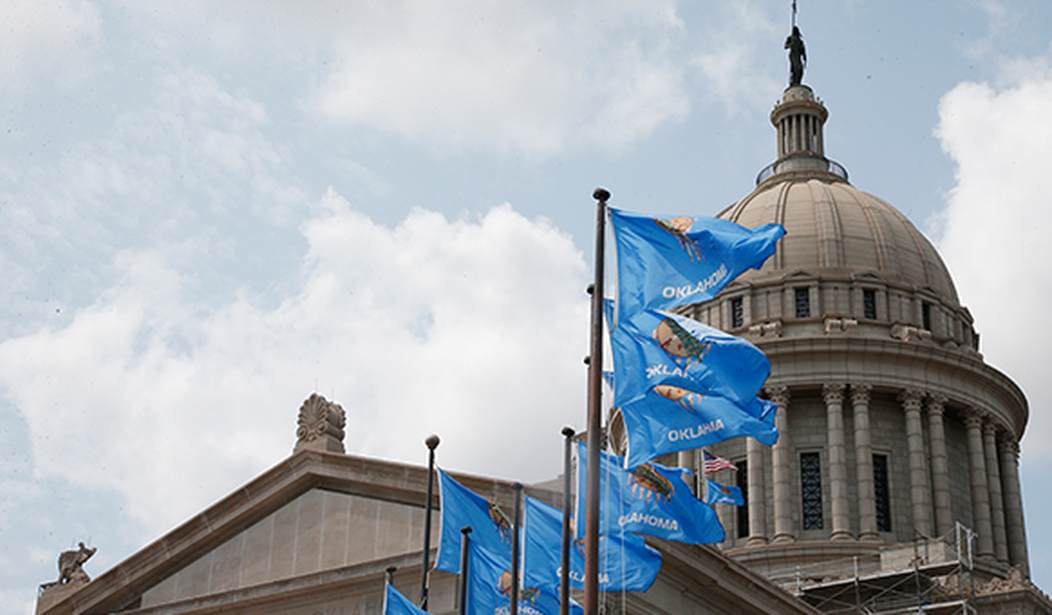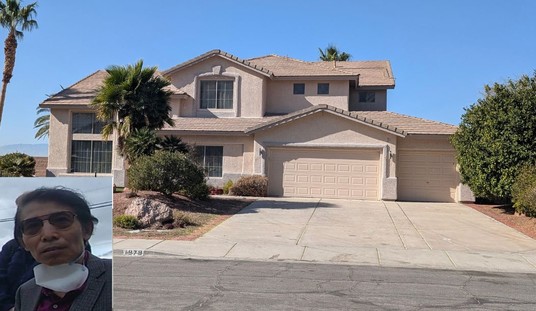On Wednesday, the Oklahoma Supreme Court dealt a blow to recent abortion ban legislation, holding 6-3 that SB 1603 and HB 4327, requiring a “medical emergency” in order for a doctor to be able to legally perform an abortion, are unconstitutional and in conflict with the Court’s March decision on the subject. Brandon Morse gave a good rundown of that prior decision:
According to LifeNews.com, the Oklahoma Supreme Court made it clear that there is no right to abortion, thus the abortion ban instituted by Oklahoma will stand. However, the state does make exceptions for medically necessary abortions where the mother’s life is in danger.
The clarification was made of the law so there is no confusion:
However, in its opinion, the court wrote “We hold that the Oklahoma Constitution creates an inherent right of a pregnant woman to terminate a pregnancy when necessary to preserve her life.”
§63-1-731.4 of the Oklahoma state statutes says, “a person shall not purposely perform or attempt to perform an abortion except to save the life of a pregnant woman in a medical emergency.”
The statute defines medical emergency as “a condition which cannot be remedied by delivery of the child in which an abortion is necessary to preserve the life of a pregnant woman whose life is endangered by a physical disorder, physical illness or physical injury including a life-endangering physical condition caused by or arising from the pregnancy itself.”
The ruling from the court was made in a 5-4 decision, in which it stated that a “medically necessary abortion” is one in which performing it will save the life of the pregnant woman, however, the woman will not have to wait until the moment her life is in imminent danger:
“‘The language, ‘except to save the life of a pregnant woman in a medical emergency’ is much different from ‘preserve her life’ found in § 861. It restricts the performance of an abortion to only a pregnant woman who is ‘in a medical emergency’ which includes that her life ‘is endangered.’ We read this section of law to require a woman to be in actual and present danger in order for her to obtain a medically necessary abortion. We know of no other law that requires one to wait until there is an actual medical emergency in order to receive treatment when the harmful condition is known or probable to occur in the future.”
Wednesday’s ruling takes issue with the “medical emergency” requirement because it appears to require a woman to wait to have an abortion until the moment her life is in imminent danger.
In a 6-3 ruling, the high court said the two bans are unconstitutional because they require a “medical emergency” before a doctor can perform an abortion. The court said this language conflicts with a previous ruling it issued in March that determined the Oklahoma Constitution provides an “inherent right of a pregnant woman to terminate a pregnancy when necessary to preserve her life.”
The court’s decision was welcomed by doctors who said uncertainty about the state’s abortion laws often forced them to make women facing severe medical complications and nonviable pregnancies to wait for their condition to worsen before they could perform an abortion.
The ruling does not change the fact that abortion remains largely illegal in the state. As explained by Attorney General Gentner Drummond:
Despite the court’s decisions today on SB 1603 and HB 4327, Oklahoma’s 1910 law prohibiting abortion remains in place. Except for certain circumstances outlined in that statute, abortion is still unlawful in the state of Oklahoma.
Under the 1910 statute, performing or helping a woman obtain an abortion remains a felony unless it is “necessary to preserve her life.” Thus, the crux of the ruling is essentially a matter of timing: Doctors need not wait until a woman is in imminent danger of dying in order to perform the procedure if they determine that it is nevertheless necessary to preserve her life.
Oklahoma Governor Kevin Stitt was displeased with the ruling, however, noting:
This court has once more over-involved itself in the state’s democratic process, and has interceded to undo legislation created by the will of the people. I agree with Justice (Dustin) Rowe’s dissent, ‘The issues presented in this matter are political questions, which are better resolved by the people via our democratic process.’













Join the conversation as a VIP Member